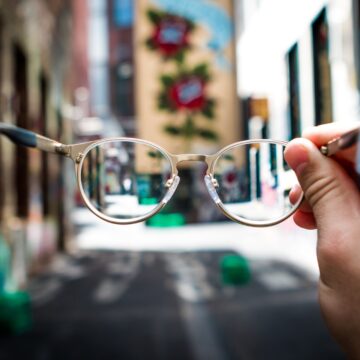
- Glaucoma refers to an eye condition resulting in vision loss due to high pressure in the eyes.
- Although it mostly affects adults over 40, the condition can happen at any age.
- Make sure you get your eyes checked regularly because glaucoma doesn’t usually show symptoms until it reaches the advanced stage.
Glaucoma is a lifelong condition where permanent vision loss may result from a damage to the eye’s optic nerve. It is often caused by an abnormal buildup of pressure inside your eye.

This eye condition is one of the top causes of blindness for people beyond the age of 60. It gets worse over time, and also tends to run in families. Although it can occur at any age, it commonly affects older adults.
Typically, most patients do not experience symptoms of high eye pressure until the advanced stages. Since total vision loss due to glaucoma is irreversible, it is essential to get regular eye checkups that include eye pressure tests so a diagnosis can be made in its early stages and treated immediately. Vision loss can be prevented if glaucoma is detected early.
Symptoms of glaucoma
If you have the condition, treatments will be required for the rest of your life. Glaucoma symptoms vary from person to person depending on the type and stage of the condition.

Signs of open-angle glaucoma include:
- Patchy blind spots in your side (peripheral) or central vision, often in both eyes
- Tunnel vision in the advanced stages
For acute angle-closure glaucoma, symptoms are as follows:
- Intense headache
- Eye pain
- Nausea and vomiting
- Blurred vision
- Seeing halos around lights
- Red eyes
If left untreated, glaucoma can cause total blindness within a few years. In fact, around 15 percent of people with glaucoma become blind in at least one eye within 20 years, even with treatment.
When to see a doctor

If you experience some of the aforementioned symptoms of acute angle-closure glaucoma, head to the emergency room or to an eye specialist (ophthalmologist) immediately.
Glaucoma Causes
Glaucoma is caused by optic nerve deterioration which makes you see blind spots in your visual field. The fluid inside your eye called aqueous humor usually flows out of your eye through a trabecular meshwork found at the junction where the iris and cornea meet. When the drainage system is blocked, or the eye is overproducing fluid, the liquid builds up resulting in eye pressure (intraocular pressure).
Risk factors

You are more likely to get it if you:
- Have high internal eye pressure
- Over age 60
- Black, Asian or Hispanic
- Have a family history of glaucoma
- Have other medical conditions like diabetes, heart disease, high blood pressure and sickle cell anemia
- Have corneas that are thin in the center
- Are extremely nearsighted or farsighted
- Suffered an eye injury or had certain types of eye surgery
- Take corticosteroid medications, especially prolonged eye drops use
Steps to Prevent the Progress of Glaucoma
Here are things you can do to detect glaucoma in its early stages.
1. Get regular comprehensive eye exams.

As a general rule, the American Academy of Ophthalmology advise having a regular, thorough eye exam every five to ten years for people under 40; every two to four years for 40 to 54 years old; every one to three years for 55 to 64 years old, and every one to two years for those beyond the age of 65.
You will need more frequent checks if you’re at risk of glaucoma. Your doctor may suggest an appropriate screening schedule for you
2. Know your family’s eye health history.
If members of your family have had glaucoma, you are at a higher risk and will need continual screening.
3. Get moving
Regular, moderate exercise may help bring down eye pressure. Talk to your doctor about the best and safe exercise routine for you.
4. Regularly use prescribed eye drops

For higher effectiveness, you need to use your prescribed eye drops regularly even though you don’t have symptoms.
5. Use eye protection.
Because glaucoma can also be caused by severe eye injuries, wear eye protection to shield the eyes especially when working with power tools or playing high-speed racket sports.
Source: Mayo Clinic
